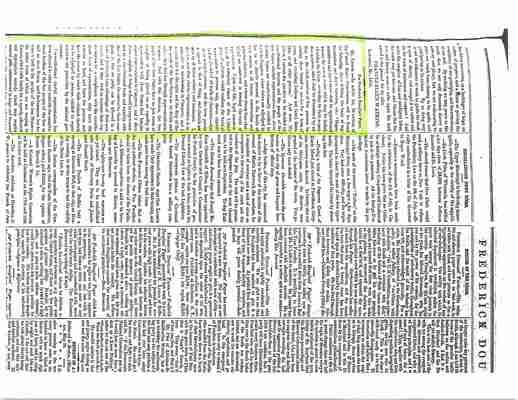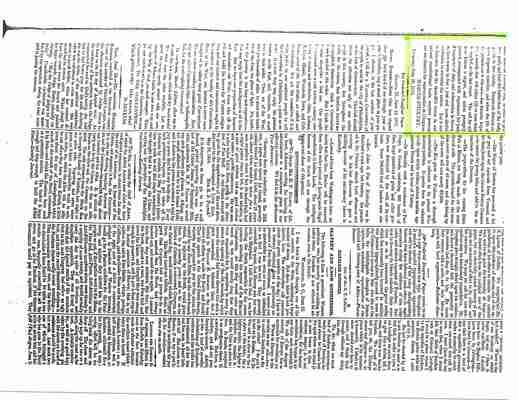Pages
D6806_Page_1
For Frederick Douglass' Paper.
MR EDITOR:—In article 1st, 2d section of the United States Constitution, will be found the following clause defining the basis of representation and direct taxation, viz.: "Representatives and direct taxes will be apportioned among the several States which may be included within the Union, according to their respective numbers, which shall be determined by adding to the whole number of free persons, including those bound to service for a term of years, and excluding Indians not taxed, threefifths of all other persons." And now, Mr. Editor, I submit the question to be decided by constitutional lawyers, and the people of the free States, whether representatives from slaveholding States are constitutionally entitled to states in Congress, where slaves are adjudged in law to be chattel personal, in the hands of their owners, to all intents, constructions and purposes, whatever, and where slaves thus chattelized are numbered in forming the ratio of representation. Upon ant fair, legal construction of the foregoing clause of the United States Constitution, which confines the basis of representation to persons only, slaves chattelized are divested of all traits of character—that in law belong to persons, and the term person is opposed to that of thing, and chattels are made up of things animate and inanimate. I, therefore, aver that chattel representation is inadmissable to membership in Congress; and I maintain that it is the right and duty of the free people of the free States so to decide and enforce their decision through representatives in Congress. And with this decision, the free people of the slave States have no just cause of complaint at being placed on an equality in representation with those States that has no chattel representation in Congress; and if slave States complain at being reduced in representation to a constitutional basis and equality with that of the free States, the answer to their complaint is that no party can be allowed in a court of justice, to take advantage of their own wrong; and if they wish to increase their representation by a compliance with the constitutional basis of representation, they have the material on hand, and know the process, and have the power by which their claimed chattels can be adjudged as persons, entitled to representation and protection by the national government.
Unconstitutional chattel representation has been allowed to exist and override the constitutional freedom of the free people of the free as well as slave States, until forebearance has become a fault in the people of the free States— the bitter fruits of which we are reaping in Kansas, which calls loudly for a speedy, effectual and appropriate remedy, which may require mineral pills, administered in large and frequent
D6806_Page_2
does from the cartridge box, in order to protect, purify and heal the ballot-box of the body politic in that vicinity. Desperate diseases require desperate remedies; and when the life of the patient—as in this case—has become hopeless, a remedy that will either kill or cure must be applied, as the last resort. The call for aid from Kansas is urgent, and unless promptly granted, accompanied with repentance for past delinquincies of duty, and reformation in future, we have reason to fear a just and more direful retribution to overtake the nation. Let it not be forgotten that the thre-fifth clause in our national constitutional basis, requires persons and not chattels for representation in Congress.
MARCUS STICKNEY.
LOCKPORT, June 20, 1855.

